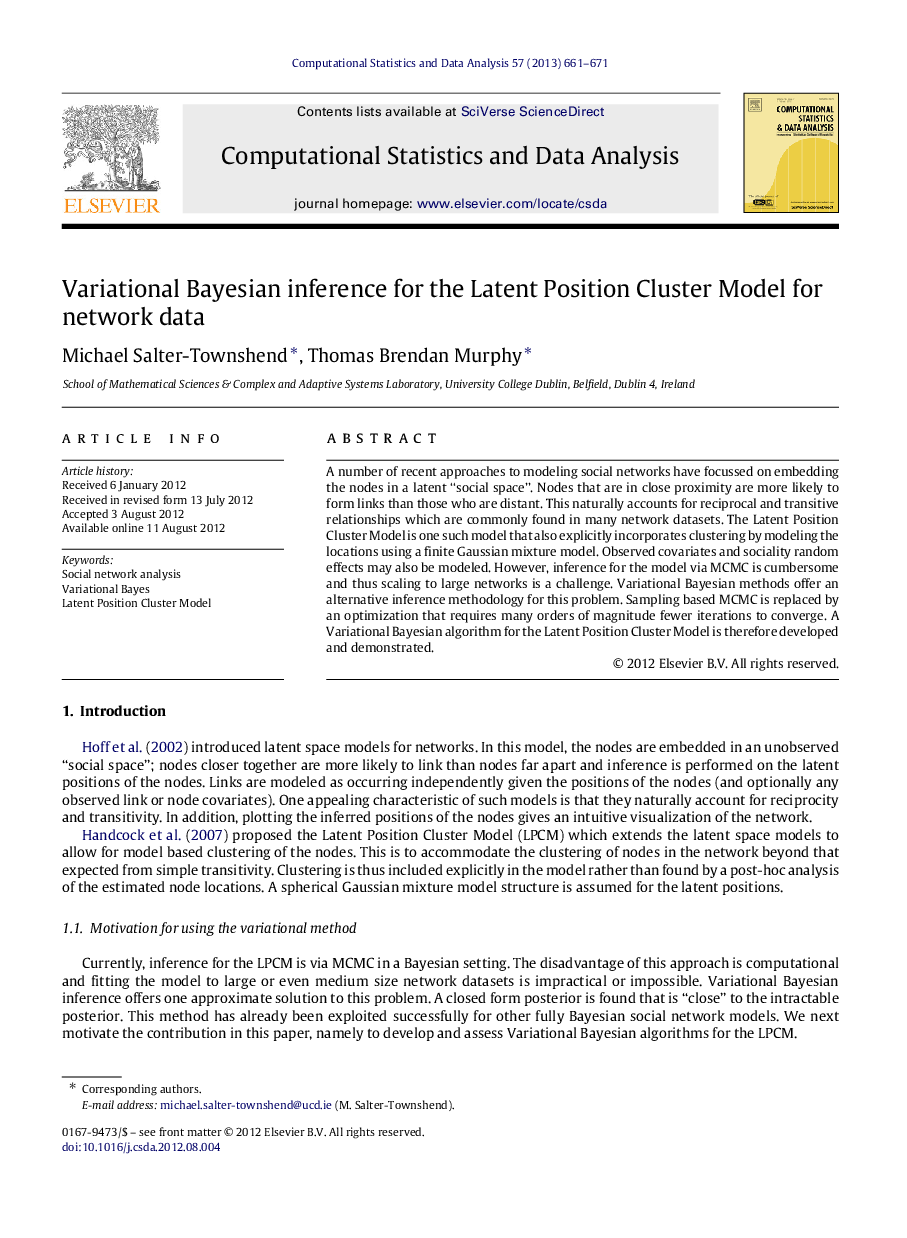| Article ID | Journal | Published Year | Pages | File Type |
|---|---|---|---|---|
| 10327510 | Computational Statistics & Data Analysis | 2013 | 11 Pages |
Abstract
A number of recent approaches to modeling social networks have focussed on embedding the nodes in a latent “social space”. Nodes that are in close proximity are more likely to form links than those who are distant. This naturally accounts for reciprocal and transitive relationships which are commonly found in many network datasets. The Latent Position Cluster Model is one such model that also explicitly incorporates clustering by modeling the locations using a finite Gaussian mixture model. Observed covariates and sociality random effects may also be modeled. However, inference for the model via MCMC is cumbersome and thus scaling to large networks is a challenge. Variational Bayesian methods offer an alternative inference methodology for this problem. Sampling based MCMC is replaced by an optimization that requires many orders of magnitude fewer iterations to converge. A Variational Bayesian algorithm for the Latent Position Cluster Model is therefore developed and demonstrated.
Related Topics
Physical Sciences and Engineering
Computer Science
Computational Theory and Mathematics
Authors
Michael Salter-Townshend, Thomas Brendan Murphy,
